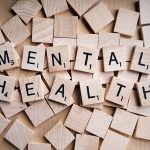How Sleep is Important for your Mental Health

This World Mental Health Month we are looking at how sleep is important for your mental health. Most people need between 5 to 9 hours sleep a night. The ideal amount is 8 hours, but everyone’s different.
Sometimes it’s not always possible to get as much sleep as you would like. If you don’t sleep well, you won’t feel as alert as you should. You will feel easily agitated and your actions may seem slow.
Stress and anxiety can lead to sleeping problems. You can experience stress or anxiety at work, with family, or in daily life. As the stressful situation passes, a more regular sleep pattern should return.
Try not to worry if your sleep is disturbed for a short while. This can be perfectly normal.
If you’ve been feeling down for a couple of weeks and have been unable to sleep, speak to your GP.
Disrupted Sleep
Difficulty sleeping is often called insomnia. The odd night without sleep won’t cause you any damage. But insomnia can leave you tired and moody. You might also be unable to focus on tasks.
Things that can disrupt sleep include:
- asthma
- breathing problems
- pregnancy
- stimulants like caffeine and nicotine
- some types of medication
- some forms of the contraceptive pill
- pain and cold relievers
- jet lag
- stress and worry
Better Sleeping Tips
You can take steps to improve your sleep.
They include:
- keeping active
- avoiding stimulants
- keeping to a routine
- avoiding naps
- relaxing your body and mind
Sleep and Mental Health
Lack of sleep can affect your general wellbeing. Long-term lack of sleep can either be a cause or a result of depression or anxiety.
Struggling to sleep over a long period of time may lead to more challenges to your mental health. It could also make any existing challenges worse.
Challenges to your Mental Health
Being tired makes it harder to cope. Over time, this can affect your self-esteem and mental health.
You may become lonely and skip social occasions. You might see fewer people. Isolation can lead to mental health problems.
Lack of sleep may also impact your mood and energy level. This could lead to negative thoughts.
Existing Mental Health Problems
Mental health problems such as stress, depression or anxiety can make it harder to sleep.
Depression can make it more difficult to cope. You may over-sleep to avoid daily tasks. This can make it harder to sleep at night.
If you’re feeling stressed or anxious, you may be more prone to disturbed sleep or nightmares.
Some medication may cause sleep disturbances.
Source: HSE






